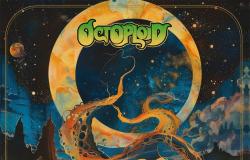The hot fiesta of beautiful books coming from Latin America continues, thanks to some Italian publishers who for some years have been publishing young Chilean, Argentinian, Colombian, Mexican, Ecuadorian, etc. writers: and, perhaps better still, these publishers also publish books centers neglected in the years of the boom that flourished around One Hundred Years of Solitude, works that reach us with all their strength intact. Thus the meritorious Sur publishes Memories of the futureof 1963, of the Mexican and cosmopolitan Elena Garro, married to the important but petty Octavio Paz who didn’t want her to write: a novel with two disturbing love stories in a Mexico which, after the Zapatista revolution, is crossed by senseless and bloody counter-revolutions, revolts and counter-revolts . A novel narrated, almost as in a Cantare del mio Cid, by a collective voice which is the voice of the town of Ixpetec, a voice which in Garro is that of the modern novel, somewhat with the fairytale tone of One Hundred Years of solitude, but four years earlier and with the technique of dialogue: a novel of great mastery that runs with an unprecedented lightness, as if a breath pushed it forward and transformed the atrocious story and tragedy that populate it into light rumor, into a ballet of colored shadows in the evening, in a circle of friends that hang from the narrator’s lips: a book that could also be a quality best-seller.
An extraordinary book that the publisher Safarà has published to his great honor is made of a completely different rhythm: it is entitled Yesterdaythe author’s name is Juan Emarpseudonym of Alvaro Bianchi, a Chilean who wrote four books in the 1930s and then never published anything else, dedicating himself to the pleasure of writing Umbral, a book he wanted published after his death, in an edition of 4135 pages written in small type. Emar-Bianchi was an expert on all the avant-garde literature of the time, so much so that reading him brings to mind writers like Lautréamont, Pirandello, the surrealists, whom he knew, but also semi-unknown writers who were making their debut like him in those years and even after him, like Gombrowicz, Landolfi, Sartre: but Emar is unique, simply unique. With his dizzying voice in which irony seems to have become irony cubed by the cube of the cube, and in which an indefinable lightness guides the story of a walk taken with his wife through squares and restaurants in which, in the heart of Chile, the world of elsewhere appears, with the labyrinths of an I that lives in reality but knows that there is not only one reality: an author who, according to the preface by Alejandro Zambra, can be compared to Cortázar without disfiguring in any way, and is a writer for today and tomorrow.
Another worthy publisher, La Nuova Frontiera, has just released Nobody lit the lamps Of Felisberto Hernandezthe enigmatic Uruguayan pianist-writer whose enthusiastic discoverer Calvino was, a book of long stories that often surpass those of the masters of the Latin American story, including the Borges and the Cortazars, due to the magnetic force of a poetry that perhaps has never manifested itself as in the mysterious Felisberto: sweetly, sovereignly free from all restraint, a darkly illuminated subversion of happiness, a happiness in revolt against the ugliness that suffocates the imagination and therefore life.
Instead it is published by the Neapolitan and courageous Wojtek Large study on Baudelaire Of Felipe Polleria short novel that is wrapped in an obsessive rhythmic spiral of the prose of Polleri, a Uruguayan writer who is now 71 years old but writes with the fury of a boy.
What can I say? The party is on, and the avid reader will immediately want to ask for the stories of Juan Emar and Elena Garro. But then! Isn’t it absurd that for decades an old Feltrinelli, I, the Supreme, a masterpiece by Roa Bastos, which tells of us and our little demo-dictators, convinced of being supreme, has been unavailable in Italian? And isn’t it time to bring back Felipe Delgado, the novel by the controversial Jaime Saenz, translated centuries ago? And where is Rosario Castellanos with his desperate rebels? And Terra nostra by Fuentes never translated like the stories by Armonia Somers and Solo los elefantes encuentran mandragora? And an edition worthy of In December the Breezes Returned by Marvel Moreno? And why doesn’t Sur, who made The Place Without Borders, also make The Obscene Bird of the Night and translate El jardìn de al lado? Dear publishers, come on, we need more fiestas!
© ALL RIGHTS RESERVED
Read the full article at
The morning






